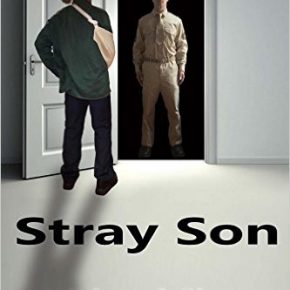Richard Slota’s Stray Son is a rough edged, tough minded historical family drama.
The book presents a grand tour of midwestern America in the 1940s, showing off our manufacturing and farming heartland. We learn about the thrill of driving a vintage automobile and of the work that went into maintaining the planes that helped us win the Second World War. My parents were nostalgic about Route 66 after browsing the novel!
The novel’s action kicks off when main character Patrick Yaworsky, a middle aged man who is estranged from his extended family and dissatisfied with his job and life, discovers the young ghost of his deceased father. He and his dad take his wife and two children from Southern California to Sioux City, Iowa to attend the father’s funeral. His deceased father takes everyone on a journey in time back to when he served in the Marines. While Stray Son has plenty of endearing, helpful side characters and interesting vintage Americana, it never lapses into uncritical nostalgia. The family’s adopted black son Mike faces prejudice in 1942 that reminds us of social progress that we have made in some ways, and we see through the radio news and the father’s conversation that people in that age lived with a very real fear that Hitler was going to win the war.
The novel incorporates supernatural elements that are crucial to the plot – time travel and the appearance of ghosts from the main character’s past. These elements accentuate the plot but don’t present an easy way out for any of the characters, who must muddle through their own problems. The whole story could even be read with the supernatural elements as a metaphor, with the ghosts appearing to the people who have the courage to face their pasts.
Patrick has major issues from his past, and the book points out that boys and men can suffer from childhood abuses that we most often associate with girls. He undertakes his journey to reconnect with his family and to confront them in order to finally understand why they treated him the way they did. The book does not avoid describing the conflict or give it a too-easy resolution – we see the great pain caused by sexual abuse and how it can last years.
Patrick experiences as an adult the lingering effects of child abuse – vague unease, alienation and depression. And he begins healing by recognizing that other people have been mean to him because of issues in their own lives, rather than internalizing the abuse and believing that he somehow deserved it or was stupid enough to bring it on himself. Through interacting with his own children and his dad’s ghost, he sees what healthy family life is like and starts to believe that he deserves it. And, after hearing his father’s and mother’s life stories, he understands, but does not excuse, the abuse as part of a generational pattern which he can escape.
The story is told with dry humor, coming from the craziness of traveling with a ghost and finding yourself in the wrong time. The dialogue and word choice captures the way ordinary people spoke at that time, full of local color and distinctive speech styles for each character. The story is paced well, with enough time dedicated to the final confrontation and explanations.
Overall very well plotted and organized book that provides a look at our country’s past through the eyes of the ordinary working people who won the war.

